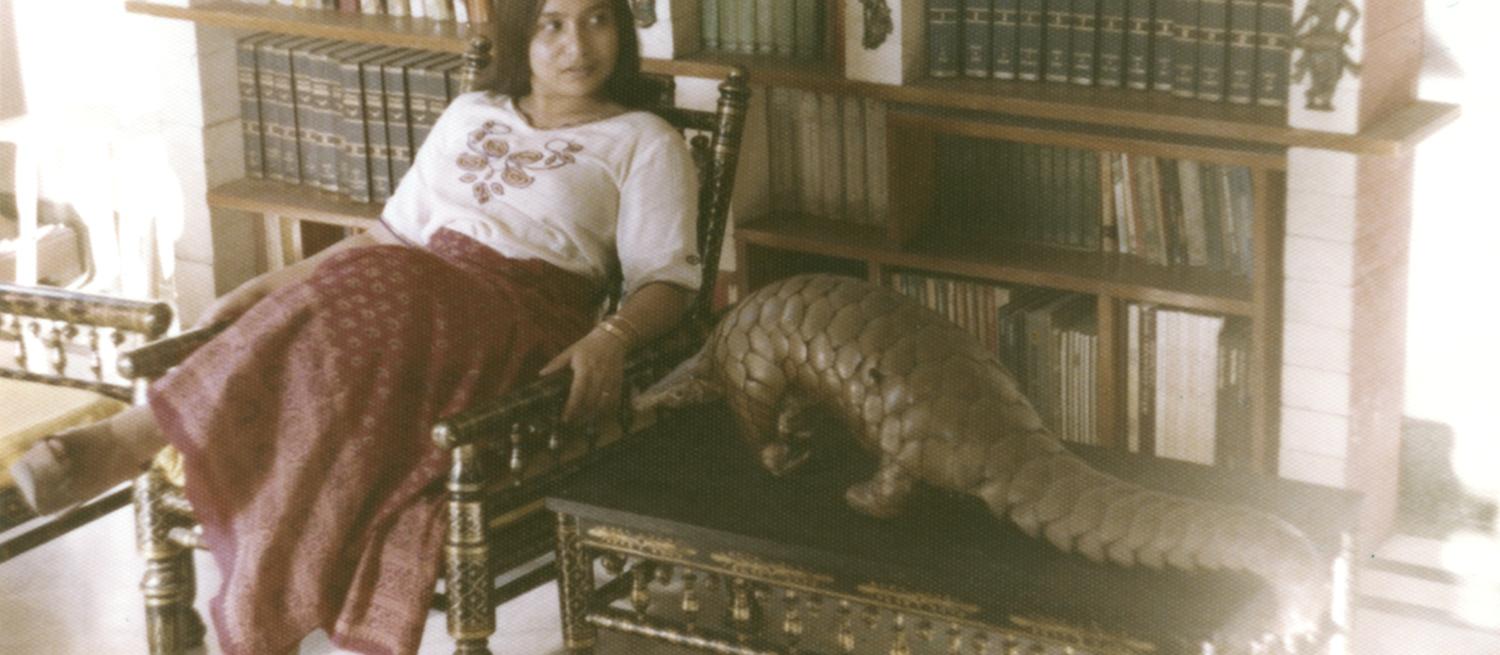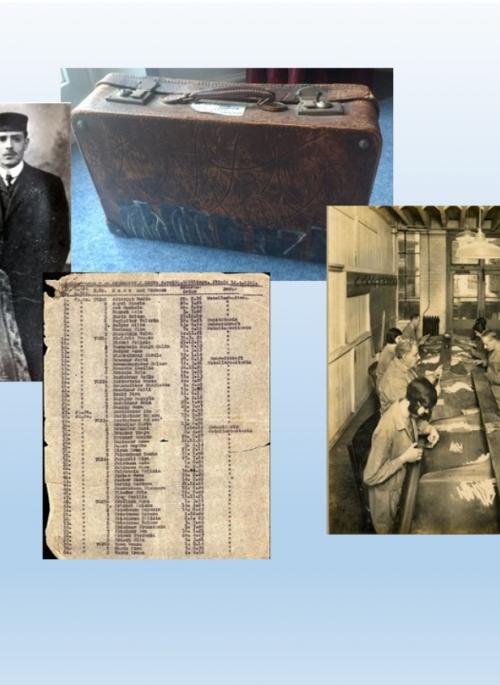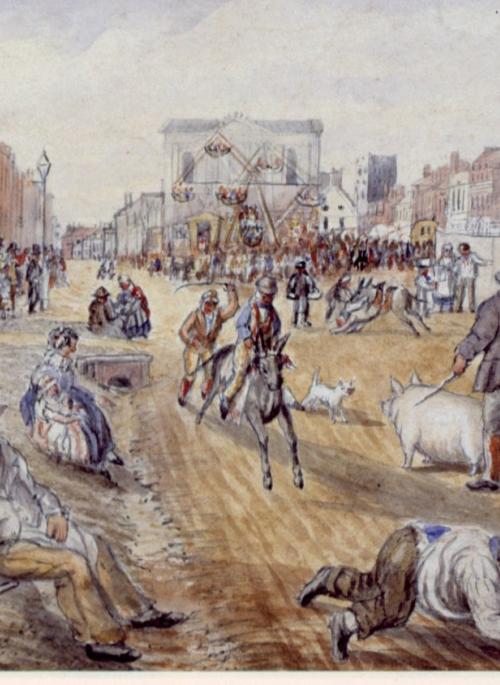Meet a few of the St Albans residents from South Asia who helped us build this exhibition and shared their memories and life stories with us.
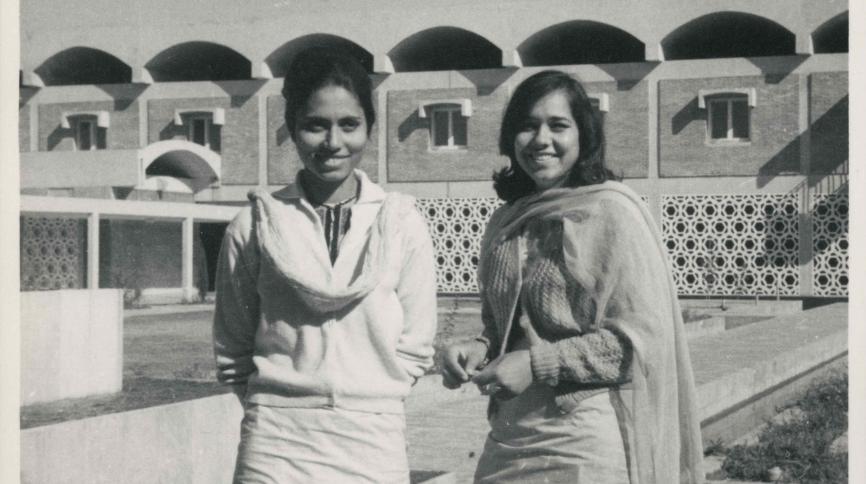
Shamima Hasan
Shamima Hasan was born in Jaunpur, Northern India in 1944. The family moved to Pakistan in 1956. In 1960 her father passed away and her elder brother became head of the household. She attended Pujab University in Lahore. In 1968 she received a Bachelor’s degree in Urdu Literature and Geography and a Master’s in Geography.
Shamima married in the same year and her husband, Mahdi, worked for an oil company. The couple had a very comfortable life in Pakistan with servants and a large house. “…in 1971 we came here on holiday. My husband was here for some work. We did a very big tour from London up to Inverness and we came back through the Lake District. I enjoyed it very much, and we talked about coming here and I said, ‘no, this is a very nice place for a holiday but I’m not coming here to clean the house!’”
Later Mahdi was offered a job in London. The couple chose to live in St Albans as it had good schools for their two young daughters and it was easy to commute. They have also lived in Norway, New Zealand and the USA. Shamima’s daughters, Batool and Amena, both attended Glasgow University.
Shamima teaches embroidery at various women’s groups and she is a very active volunteer on a number of projects. She also studies floristry at Oaklands College. She has seen St Albans change a lot over the years. “The worst I find is traffic and parking, but St Albans is central and that is why I like it. The best thing that has happened is Luton Easy Jet Airport because we go to Glasgow and that is the cheapest way that we can go.” Another thing that has changed over the years is British culture. “Generally I find that the whole British attitude and living is so Americanised and I feel very sorry for that.”
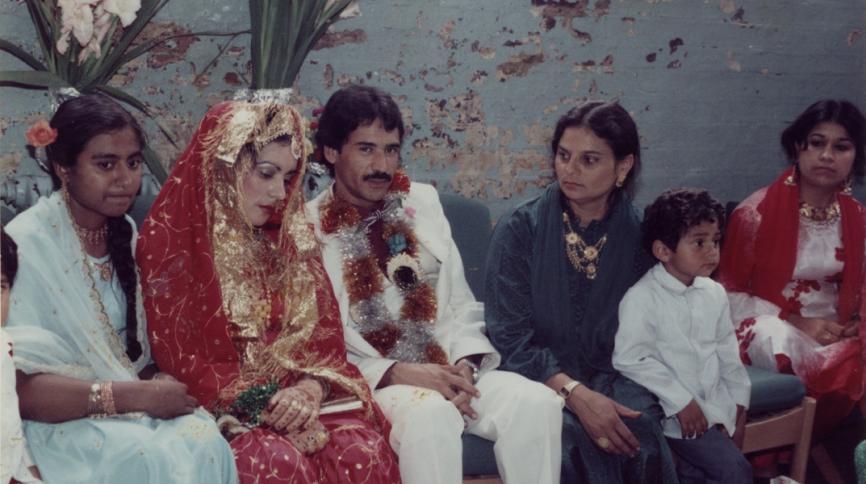
Farhat Zia
Farhat was born in 1962 in Baffa, North Pakistan. She moved to St Albans as a child in 1969 with her parents, Mumtaz Begum and Gulam Sarwar Khan. She remembers having lots of friends in Pakistan, “ …playing out, going to school. As soon as you came back from school you change your uniform and we were playing in the street outside with the children and that’s one of the things I really missed here because we were always cooped up in our rooms.” Farhat attended Fleetville Junior School and then Sandfield Girls School. She later worked at Aquascutum on Hatfield Road.
Farhat married Iqbal Zia in 1982 and they have three children, Faisal, Waqqas and Henna. Whilst working for the Youth Service she set up the Asian Girls’ Group, which aims to provide an appropriate environment for girls from Asian backgrounds to socialise.
Farhat heard about the experience of one woman who “…was asked to produce some evidence for the Benefits Service but she didn’t understand the system where you have to take a ticket and wait your turn to be called. She didn’t realise, and she just sat down. And she sat from ten o’clock in the morning until three o’clock. Nobody asked her why she was sitting there. This is why we set up the Pakistani Women’s Welfare Association, which provides support, advice and opportunities for socialising and volunteering.” Most recently some of the members have been involved in fundraising for Grove House Hospice.
Farhat now works for Connexions as a community-based Personal Advisor for the Minority Ethnic Curriculum Support Service.
Iqbal Zia
Iqbal was born in Baffa, Northern Pakistan, in 1954. “It was wonderful to grow up in that village, friends roaming around the street…I enjoyed my childhood.”
He began his working life as a teacher and later studied at the Sindh Muslim Law College in Karachi and became a qualified lawyer in 1982. That August he travelled to St Albans for his marriage to Farhat Khan. He says “…it was my first visit, arriving at Heathrow and my brother-in-law and my father-in-law were there to greet me which was excellent…I consider myself lucky because I left a family in Baffa and I was greeted by a family in England…living in St Albans and then progressing, that is a totally different story.”
“I applied to the Bar Council [for a license to practise law in the UK]. I wasn’t aware that there’s discriminations, they look at where you are qualified and they push your file to the side…it was hard particularly with September approaching, the weather is getting worse, you’re unemployed stuck in your bedroom, and looking out through the window how the weather is like!!” He waited for six months for a negative response. By this time he was working for Metal Extrusions Ltd, which was very hard, manual work in shifts.
Since then he has had a varied career. In 1990 he looked back on his experience and training and decided to become a teacher. He now works as an advisor for Connexions. “I work with NEET group, young people who are Neither in Education, Employment or Training. They are post-sixteen and they either didn’t make the grades or they have other issues. My role is to break the cycle and the barriers which they are facing…to deal with one issue at a time and then move them forward…make a successful transition into adulthood, which is fascinating.”
Hazi Gulam MostafaIt was hard to beat the cold even if I was under a layer of three or four blankets. I was jobless for three months after I had come to this country. I was sitting idle.
Hazi Gulam Mostafa
Hazi Golam Mostafa was born in 1937 in Trailokya Vijay, India. He trained and worked as a tailor and then came to London in 1963 when he was 25 years old. He remembers coming out of Heathrow Airport with his cousin’s address in his pocket. He couldn’t speak English but recognised the word ‘Taxi’, gave the driver the address and was taken to his cousin’s house in St Albans.
“It was November. The cold felt as if I was inside a refrigerator. The room could not be heated even by burning coal. So we used to light a kerosene heater in the room at night. It was hard to beat the cold even if I was under a layer of three or four blankets. I was jobless for three months after I had come to this country. I was sitting idle.”
After three months he found work at the Chrome Alloying Co. Ltd in Hatfield, “I worked for four shillings per hour and earned eight pounds, working forty hours a week. Twenty shillings made a pound. I could get about ten pounds if I worked overtime… I had to stand at the bus stop for about an hour in severe cold. I used to get up at six o’clock in the morning. I started working at eight in the morning and finished at five in the evening. When I worked overtime, it was eight to eight. I worked in the same factory for fourteen years. In 1976 I moved to Campfield Road with my family. This year I joined the Rubber Co. Ltd. I worked there until the factory was closed.”
“In 1979 I started a restaurant, the Star of India on London Road, St. Albans. In 1984 my son sold it and started another restaurant. He started another one called the Langley restaurant after that. This one is still running. Now I am a pensioner and write songs and ghazals as a pastime.”
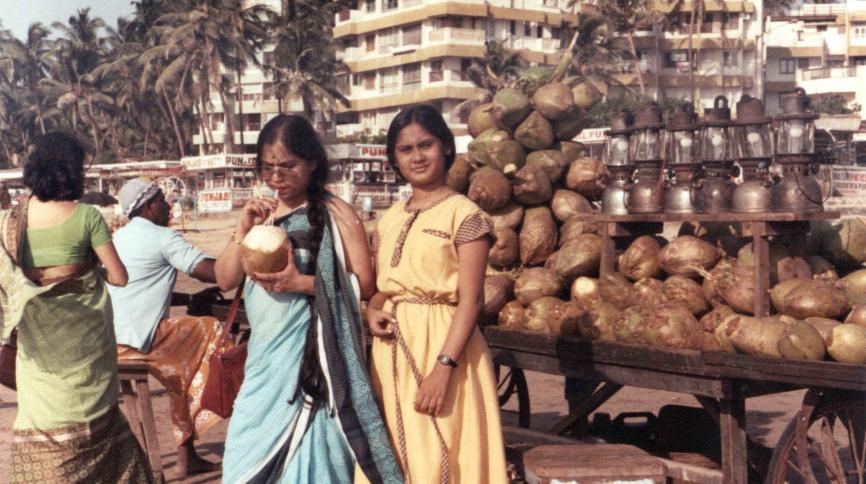
Bandana Bose
Bandana Bose was born in Kolkata in 1953. Her father’s family had been Zamindars, landlords who collected taxes on behalf of the British authorities. They also owned tea plantations and Limestone mines.
Bandana attended La Martiniere College in Kolkata, India. The school was established in 1845 by Major-General Claude Martin. Martin had accumulated his wealth by trading in indigo, a dark blue dye derived from certain plants. La Martiniere College still exists.
She married well-known St Albans cricketer Subhas Chandra Bose in 1976. “He came in 1965 when there was a shortage of engineers in England… he worked at Alan West, originally EAC…almost everyone who lived in St Albans at one time worked there. Then he went to Dubai and when he came back they were getting rid of people so he and a few other partners got together and they started their company Alan Electrical which is still working today.”
The couple initially lived in Caddington. “My husband had already bought a house in Caddington, which is a little village…I was born and brought up in a city. I didn’t drive, I couldn’t go anywhere and I found it very restricting so I wanted to move. I chose St Albans and we moved in 1979 and that was the best move I ever did. I love it in St Albans, it is my home and I wouldn’t want to live anywhere else in the world.”
Bandana taught at many St Albans schools over a period of twenty years, since her daughter was five. “Teaching Bengali to a GCSE level because what was discovered was that learning the mother tongue provided an inter-lingual support to English.”
Allum Syed“Nobody throws their parents away because they are old, even if they can’t afford it, we live together.
Allum Sayed
Allum Syed was born in Dhaka in 1939. At this time Dhaka was part of British India. After partition in 1947 the area became East Pakistan. Since 1973 Dhaka has been the capital city of Bangladesh.
“When I finished my education over there I took up a job in a British firm …during that time immigration wasn’t a problem, if you can buy a plane ticket you can come. At that time [1963] I knew somebody who lived in St. Albans so I wrote him...and he said yes by all means come stay with us. I liked the place, beautiful place St. Albans and very convenient, London is very near.”
Allum Sayed worked at Marconi Instruments for some years. He went to Oaklands College to improve his English. “I found English is a totally different language here.” He was later employed at Elliot Brothers Ltd in Borehamwood. “… gradually I studied a bit of computer as well…I worked there for 25 years. I worked on many computers during that time including the Concorde fuel distribution computers.”
In 1967 his wife moved here from Bangladesh. “When I came not many houses have central heating so I put central heating in. Otherwise my wife comes from the hot and we felt terrible.” The couple have two sons.
He sees some cultural differences between the British and the Bangladeshi way of life. “Nobody throws their parents away because they are old, even if they can’t afford it, we live together. You had in this country many years ago, but it will come back. Economy will say you’ve got to look after them because not enough pension unless something changes. I felt I had to look after my parents, my moral duty, and I feel my children will look after me.”
